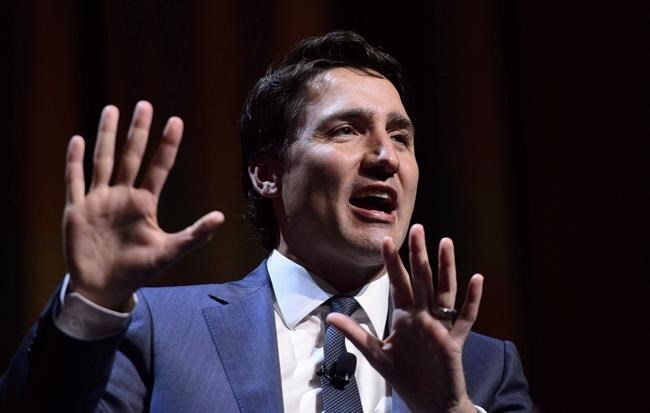NEW YORK — Prime Minister Justin Trudeau is headed to the U.S., hoping to capitalize on last month's well-received presidential visit as he pitches New York's movers and shakers on the virtues of Canada as a trade and investment partner.
Those who watch the bilateral back-and-forth closely say they want to hear more about how Ottawa will expedite the growth of its nascent critical minerals sector, which is fast becoming the fulcrum of Canada-U.S. relations.
In other words, it's time to detail the plan for getting those 21st-century riches out of the ground, said Louise Blais, Canada's former consul general in Atlanta and now a senior adviser with the Business Council of Canada.
"We need to be clear on how the government is going to facilitate, accelerate and de-risk extraction investments. This is a major challenge," Blais said.
Canada needs its own domestic version of the U.S. Inflation Reduction Act for the sector, she added — a plan for eliminating regulatory red tape that brings the necessary partners to the table.
"Not just in the form of incentives, but by streamlining regulations and working with provinces and stakeholders to get us there."
The excitement about critical minerals, and the potential impact on the relationship between the two countries, has grown ever more palpable — perhaps never more so than following President Joe Biden's visit to Ottawa last month.
The joint statement following the meeting affirmed a mutual understanding of critical minerals as "vital to our economic and national security" and promised to "demonstrate the commitment of the United States to support Canadian companies in the energy economy."
Companies on both sides of the border will have access to US$250 million under the Defense Production Act, which can effectively designate Canadian companies as U.S. partners in matters of national security, to mine and process critical minerals for electric vehicle and storage batteries.
And Canada needs to put its "policy where its mouth is," said Scotty Greenwood, CEO of the Canadian American Business Council.
"It's just a perfect moment for Canada to draw a contrast with the United States on permitting certainty," Greenwood said.
"That is the single biggest thing Canada can do to be relevant from a foreign policy and economic policy and national security point of view to the United States of America."
Critical minerals development is Job 1 for both countries, since it connects so many environmental, economic and foreign-policy goals, said Russell Singer, the State Department's energy and environment officer in the Office of Canadian Affairs.
The top two agenda items to emerge from the Biden-Trudeau meetings were using the growth of clean energy to create good jobs, as well as securing reliable supply chains for critical minerals, Singer noted.
"So the top two things on the priority list of our two leaders are very inherently tied to this discussion about critical minerals," he told last week's annual gathering of the Canada-U.S. Law Institute in Cleveland.
"I think that speaks louder than words."
The cross-border partnerships are already bearing fruit in both directions, said Jeff Labonté, the assistant deputy minister for the lands and minerals sector of Natural Resources Canada.
That includes U.S. and Canadian firms investing in each other, as well as U.S. critical minerals being processed north of the border before returning to American soil as auto components, Labonté told a conference last week.
"It's a really good example of how we have foundations that exist, built on our history of working together and being economic partners," Labonté told the CUSLI conference.
"We now have a fairly large policy intention to supersize that, and make sure that it's ready for the economy of the future — one that protects our supply chains that were so exposed to be vulnerable in the last number of years."
On the policy side, the highlight of the trip is likely to be Trudeau's speech to the New York-based Council on Foreign Relations, one of the world's foremost foreign-policy think tanks and a popular forum for world leaders.
First, though, Trudeau will polish his progressive bona fides at Global Citizen NOW, an annual summit meeting of change-minded celebrities, activists and lawmakers looking to kick-start progress on a host of international challenges.
The prime minister is scheduled to take part in a discussion about gender equality with Jacqueline O'Neill, Canada's ambassador for women, peace and security, and former CTV National News chief anchor Lisa LaFlamme.
Other attendees at the two-day event include Hollywood stars Hugh Jackman and Katie Holmes, musician John Legend, French President Emmanuel Macron and Barbados Prime Minister Mia Mottley.
"The prime minister will champion women’s rights, including sexual and reproductive health and rights and the empowerment of women everywhere," the Prime Minister's Office said in a statement.
Trudeau and Mottley will also preside over a meeting of the SDG Advocates, a high-powered UN panel aimed at meeting a number of sustainable development goals by 2030 on issues like poverty, equity and clean energy.
This report by The Canadian Press was first published April 26, 2023.
James McCarten, The Canadian Press

